Category: Blog
all the blogs belong to here
OAK8X module specifications
The OAK8X analogue module supports four (4) built-in FXO plus four (4) optional FXS or FXO module in your Asterisk system, you will have totally 8 Asterisk channels, such as 4FXO plus 4 FXS, 4FXO plus 4FXO in one small module (the OAK8X module size equals to Pi module).
The modular nature of the cards allows you to mix and match between line (FXO) and station (FXS) interfaces, giving you the exact port configuration you need.
The OAK8X module is compatibles with all versions of Asterisk using the DAHDI driver framework. Asterisk and DAHDI are available for free from the Asterisk.org website.
The OAK8X module supports Raspberry Pi 3 B+, Pi 3, Pi 2, B+, B and A models.
Specifications:
- Four (4) FXO plus four (4) FXS or FXO analogue ports
- Raspberry Pi I2S, SPI bus architectures
- Combine line (FXO) and station (FXS) modules
- Loop Start or Kewl Start Signaling
- Temperature: 0° to 50° C
Firmware:
- Asterisk 13.20.0
- Dahdi 2.11.1
- The SwitchPi TDM module fully supports the SwitchPi own GUI.
- The OAK is fully open hardware and software designed, get started in here
Pictures
Manual of install OAK module
OAK Module hardware installation
Insert the OAK module to a Raspberry Pi 2 or 3 board like below picture shows
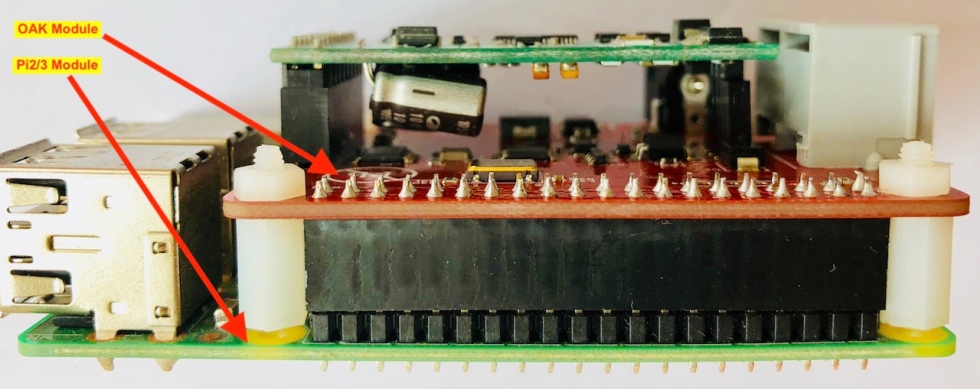
We provide 4 plastic screws, use them to fix the OAK board to Raspberry Pi board such as below shows
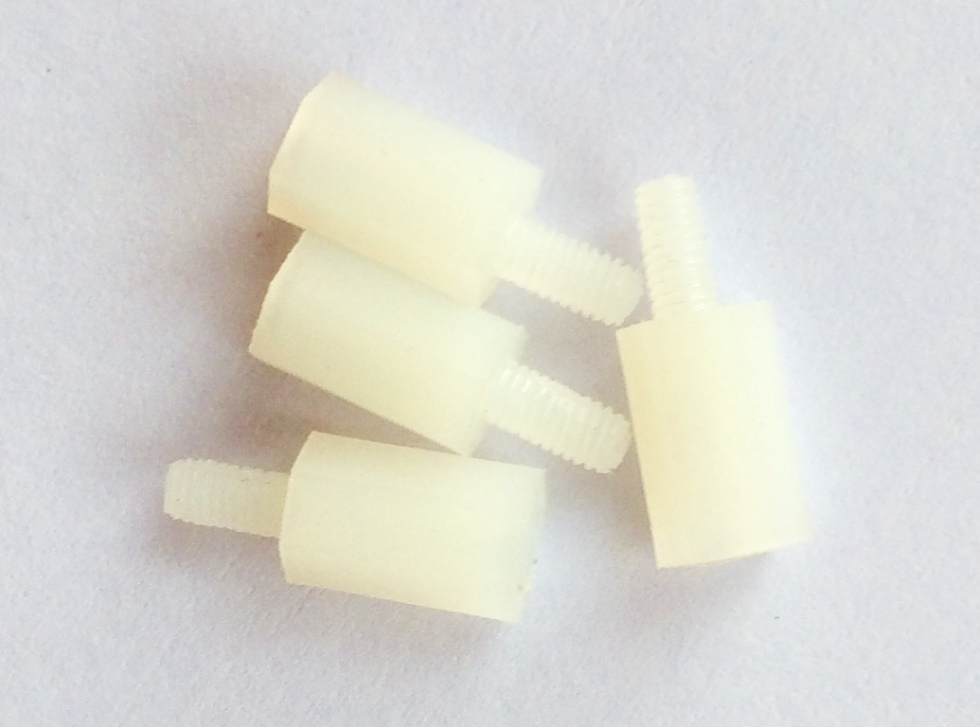
The finally looks like below
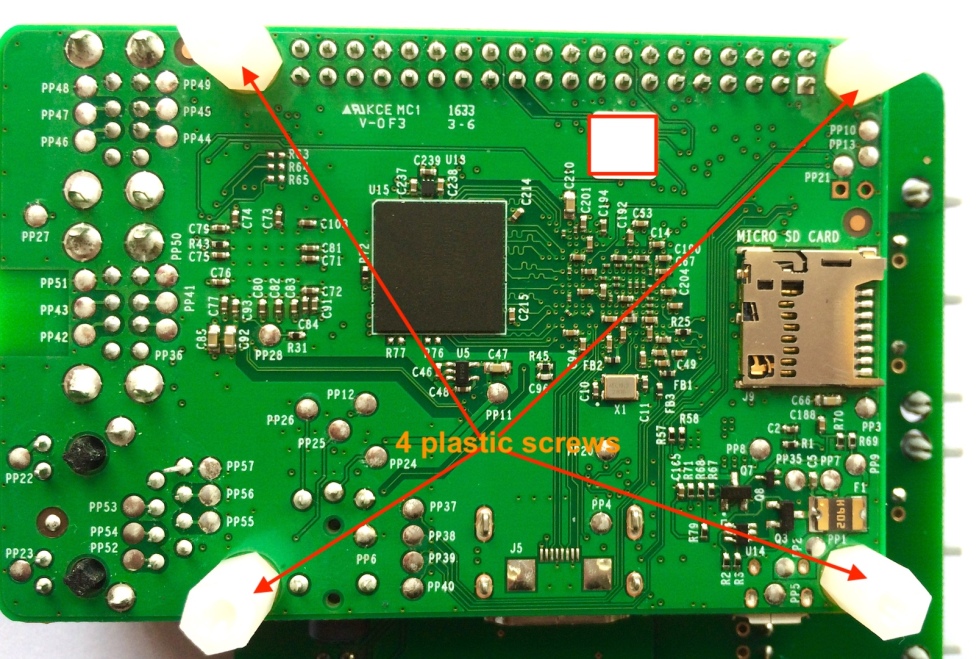
Until now, the OAK module installation is done, let us move to software installation.
OAK Module software installation
There are two ways to install the OAK module software, one uses our firmware get a quick try, other is you can compile whole things by yourself as the OAK module is open source designed.
Use our firmware
Go to the SwitchPi official website download the switchpi OAK firmware – switchpi-with-gui-1.0.1.imag.zip in here . The switchpi-oak firmware currently version is 1.0.1, built-in Asterisk-13.20 and Dahdi-2.11.1.
Put the downloaded firmware to a Linux distro PC, then following below steps to clone it to an 8G SD card (we strongly suggested to use a class 10 HC SD card such as below SanDisk one), insert micro SD card to your PC with a USB SD card adaptor, the Linux will recognized it like /dev/sda or /dev/sdb which depends on your OS how many drives, you can check it out with command “dmesg”, we are using the /dev/sdb in here.
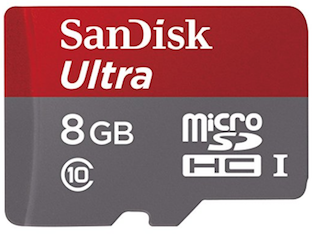
root@oak:~/pitdm# unzip switchpi-with-gui-1.0.1.img.zip root@oak:~/pitdm# dd if=switchpi-with-gui-1.0.1.img of=/dev/sdb bs=4M
Compile driver by yourself
Please follow the OAK module README.md to compile the driver, https://github.com/lixinswitchpi/oak
Power Up
Remove the SD card from Linux PC and insert it to your Raspberry Pi 2/3 board, plug the 9V 1A power supply which is with your OAK module together when you received your order as below shows
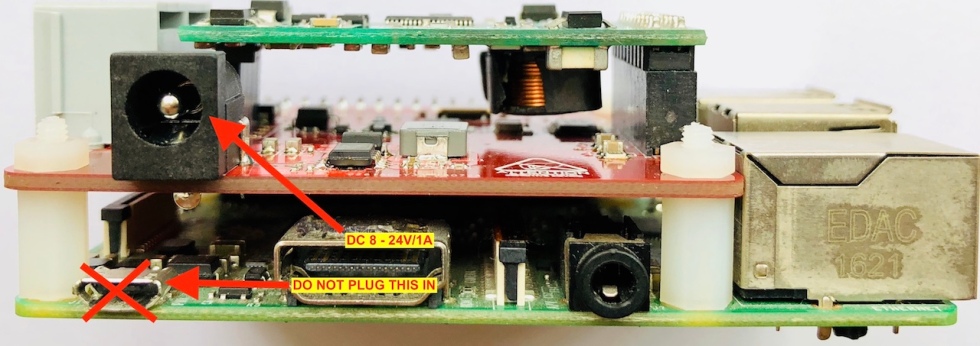
Please pay attention in here, as our OAK module feeds your Raspberry Pi power as well, thus you DO NOT require to insert the Raspberry Pi USB DC power supply anymore !!!
The default IP address is 192.168.4.99, you can ssh log into it with username “pi”, password “raspberry”.
Now you can use your web browser to log into the GUI of SwitchPi to configure your OAK module, for the details, check it out in here.
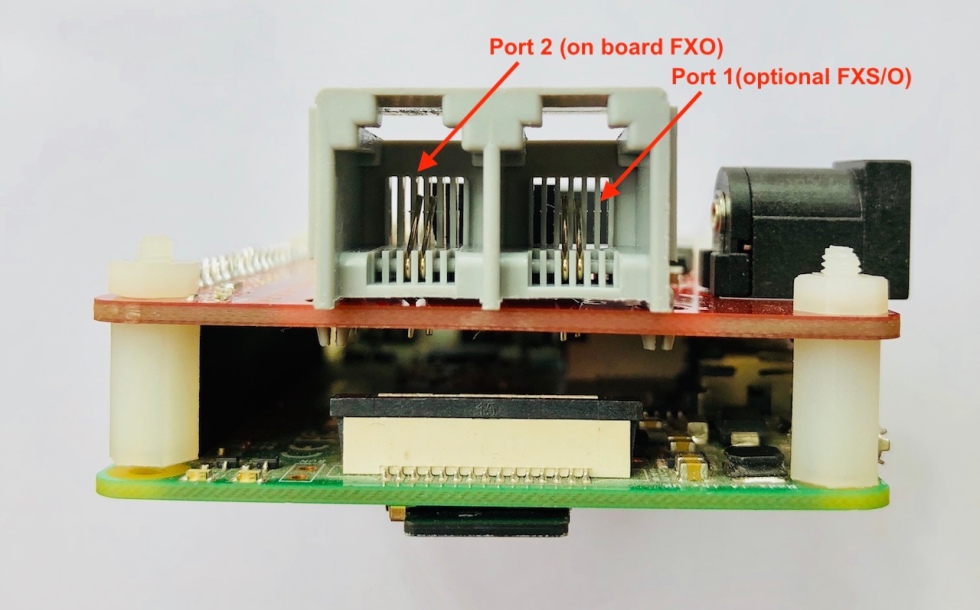
OAK module specifications
One FXO+X Analog module
The OAK analogue module supports one (1) built-in FXO and one (1) optional FXS or FXO module in your Asterisk system.
The modular nature of the cards allows you to mix and match between line (FXO) and station (FXS) interfaces, giving you the exact port configuration you need.
The OAK module is compatibles with all versions of Asterisk using the DAHDI driver framework. Asterisk and DAHDI are available for free from the Asterisk.org website.
The OAK module supports Raspberry Pi 3 B+, Pi 3, Pi 2, B+, B and A models.
Specifications:
- One (1) FXO plus one (1) FXS or FXO analogue port
- Raspberry Pi I2S, SPI bus architectures
- Combine line (FXO) and station (FXS) modules
- Loop Start or Kewl Start Signaling
- Temperature: 0° to 50° C
Firmware:
- Asterisk 13.20.0
- Dahdi 2.11.1
- The SwitchPi TDM module fully supports the Raspbx’s latest version, the Digium official GUI and the SwitchPi own GUI.
- The OAK is fully open hardware and software designed, get started in https://github.com/lixinswitchpi/oak
Pictures:
OAK module has released
The Oak module has been released at today after through 2 months of hard work, here are some pictures for the first view







